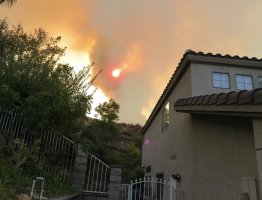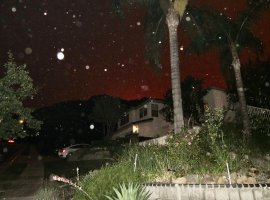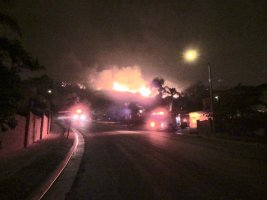jar546
CBO
Alright, folks, let's dive into a topic that's been lighting up conversations among builders, inspectors, and even homeowners: Fire Safety vs. Material Costs. With wildfires becoming the new norm, should we be mandating fire-resistant materials in construction, even if it means jacking up the costs? I've got some thoughts on this, and I bet you do too.
Thoughts? Let's get this conversation fired up.
The Burning Issue
First off, let's get one thing straight. Wildfires aren't just "natural disasters" anymore; they're a recurring menace. We've seen the devastation they cause, not just in terms of property but human lives. So, the question isn't whether fire-resistant materials are necessary. The real question is, why the heck aren't they mandatory already?The Cost Factor
Now, I get it. Fire-resistant materials can be expensive. Whether we're talking about fire-resistant sheathing, gypsum boards, or specialized insulation, these materials can add a significant chunk to your construction budget. But let's put this into perspective. What's the cost of a human life? What's the cost of entire communities getting wiped off the map?Code References and Standards
Before you start quoting IBC Section 703 or NFPA 285 to me, let me stop you right there. Yes, we have some codes and standards that touch on fire resistance, but are they enough? And more importantly, are they consistently enforced? I've seen projects where fire-resistant materials were "optional" because of some loophole or local amendment. Seriously? We're playing with fire here, literally.The Contractor's Dilemma
I've heard the arguments from contractors: "If you make it mandatory, it will drive up the costs, and fewer people will be able to afford new homes." Fair point. But let's flip the script. What if your house becomes the next headline on CNN because it got reduced to ashes? I bet you'd wish you'd invested in those fire-resistant materials then.The Inspector's Role
Alright, my fellow inspectors, this one's for us. We're the gatekeepers here. If we see a project skimping on fire-resistant materials where they're clearly needed, it's our job to flag it. No excuses. No "it's a gray area." This is as black and white as it gets.The Bottom Line
- Fire-resistant materials save lives and properties. Period.
- Yes, they can be expensive, but can you really put a price on safety?
- Codes and standards are great, but they're only as good as their enforcement.
- Contractors, I get your concerns, but safety should never be a bargaining chip.
- Inspectors, let's be consistent and stringent in our evaluations. Lives depend on it.
Thoughts? Let's get this conversation fired up.



